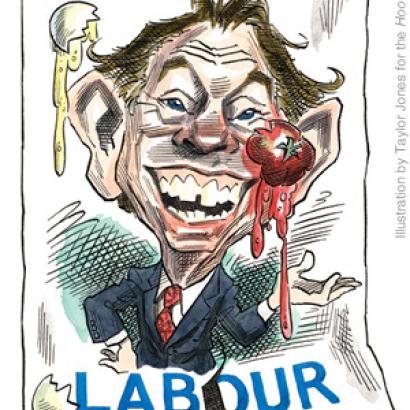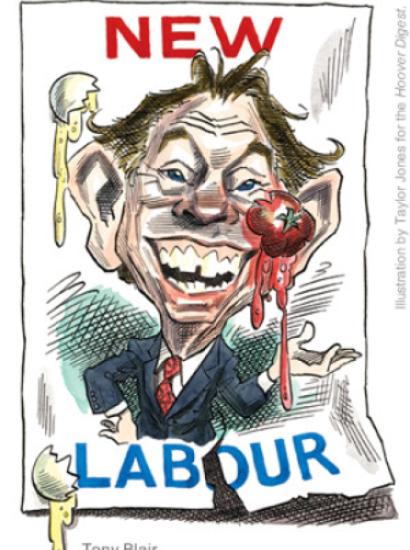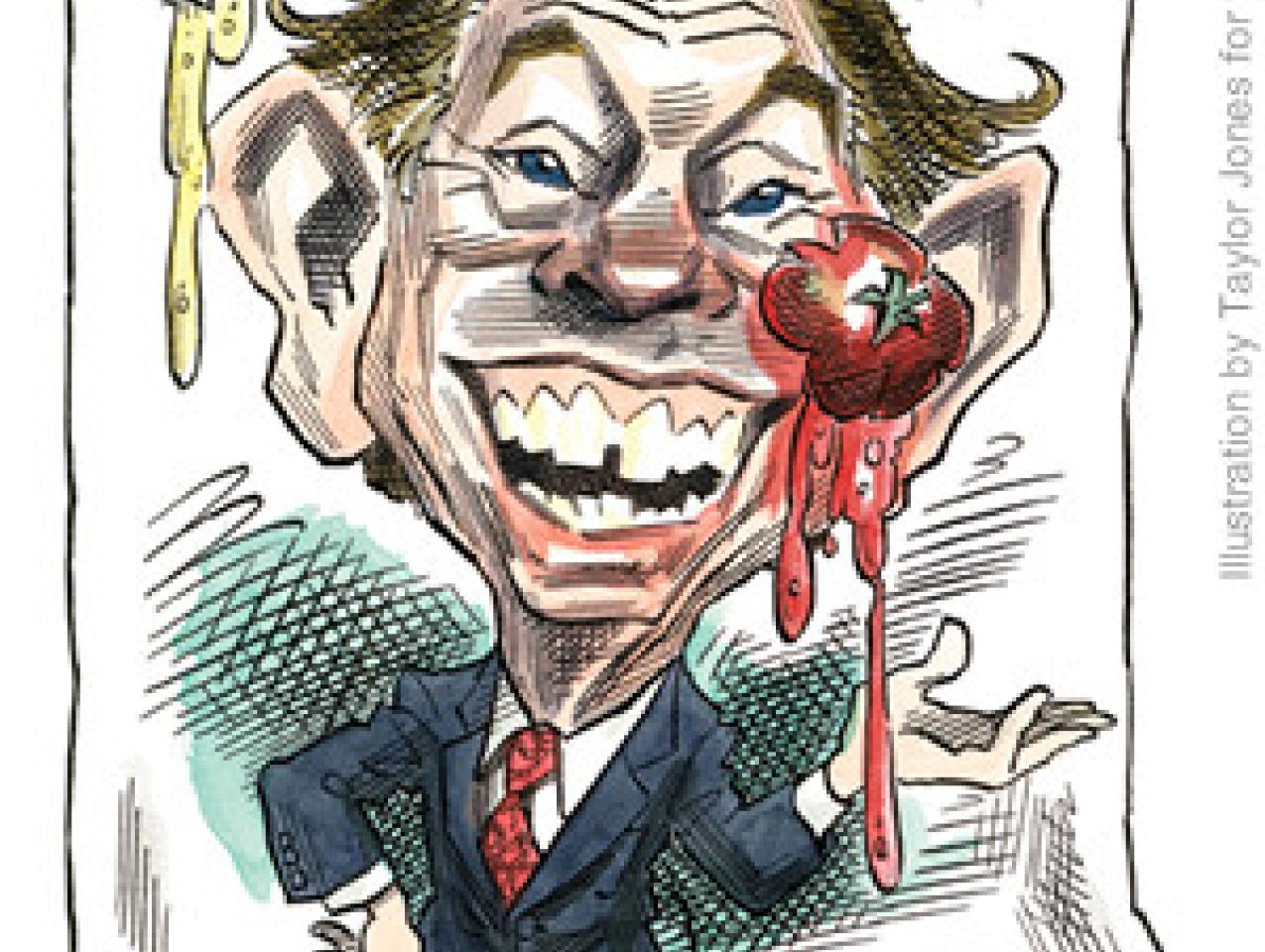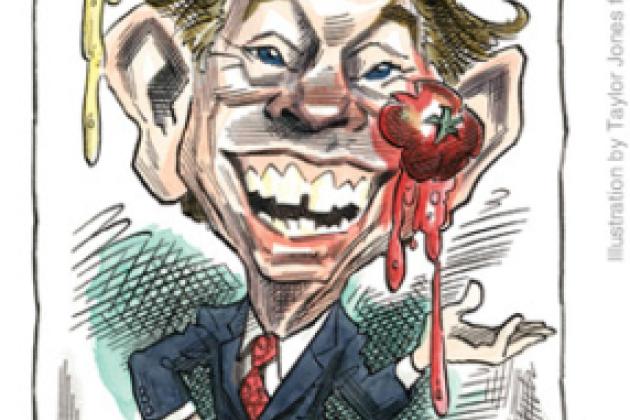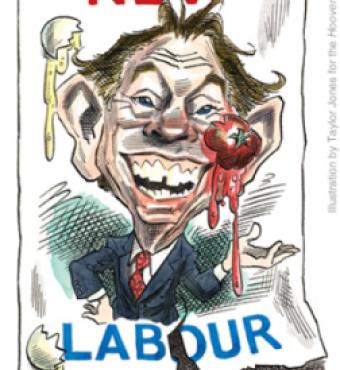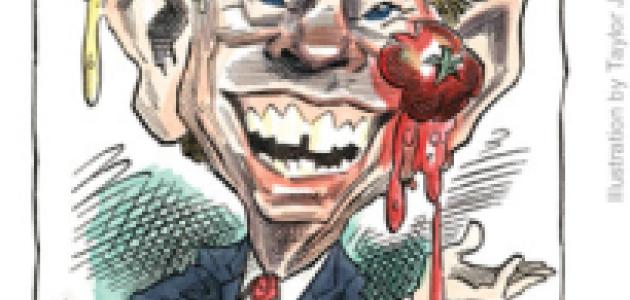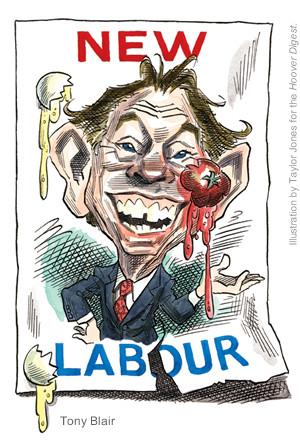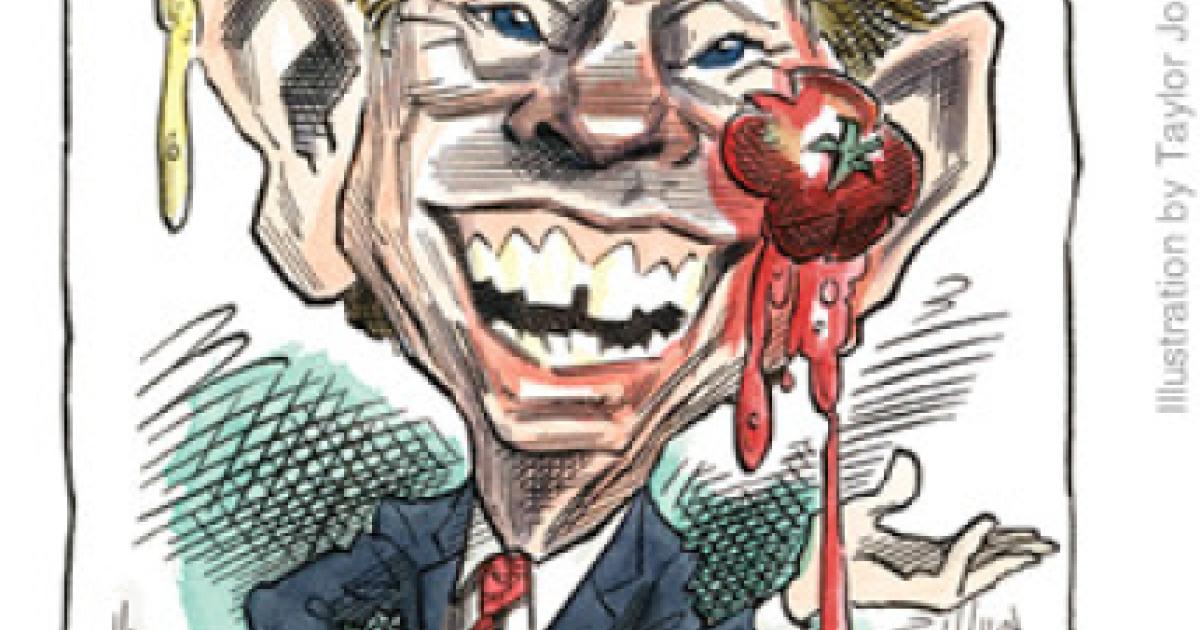- International Affairs
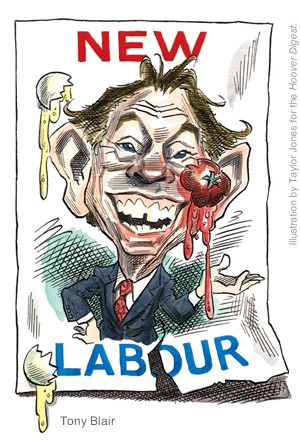
As the 2004 American election campaign nears an end, a British national election is coming into view. British pundits agree that Prime Minister Tony Blair will most likely call an election for spring 2005. They also strongly expect Blair to lead his Labour Party to an unprecedented third straight term in office, though probably with a smaller majority in the House of Commons than the landslide advantage he has enjoyed during the last seven years.
What makes the coming British election so interesting is that Labour is likely to win despite the electorate’s strong dislike and distrust of Blair. A majority of likely voters, including many Labour supporters, even want Blair to resign as prime minister before the election or just afterward. Many voters believe that the prime minister lied about the reasons for taking Britain into the Iraq war and that the war was a mistake. In sum, Blair’s leadership troubles far exceed those faced by President Bush.
Why, then, is Blair’s Labour Party so favored to win a third term?
It’s the Economy, Stupid
Simply put, the British economy continues to be the best in Europe, and in public opinion polls the Labour government gets the credit for preserving and adding to the economic prosperity it inherited from the Conservative government first headed by Margaret Thatcher. British voters also hold the optimistic view that Labour will continue to create jobs and sustain economic growth if it continues in power.
Labour has thus put to rest the long-running and damaging Conservative argument that only Conservatives can manage economic and fiscal policy because Labour is a hopelessly socialist party dedicated to destroying capitalism. Assuming that the positive economic profile remains in place, as voters clearly expect, what more could a political party heading into an election hope for? And, given Britain’s ugly economic track record over much of the twentieth century, this run of good times has a special political importance.
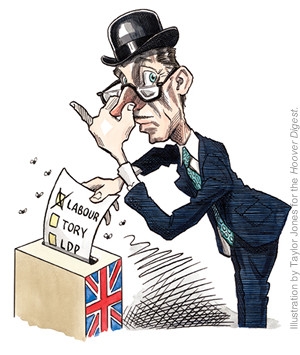
Opposition Weaklings
The Labour Party continues to face remarkably weak opposition. It is simply amazing that, after more than seven years in office and in the face of a dramatic fall in the prime minister’s personal popularity, there is nothing like a serious challenge from an energized and cohesive opposition.
The primary part of this story is that Britain’s historically most successful party, the Conservatives, continues to be a disaster. Only a year ago, the Conservatives seemed poised to make one of their famous political comebacks. They chose a new leader, Michael Howard, who seemed to have the ability to bring the party together again. Many thought Howard would give the Conservatives energy and optimism that would carry over into renewed popularity with the wider electorate. But that transformation has simply not happened. Over the past few months, it seems that the more the electorate sees of Howard, the more they reject him as an alternative to Tony Blair. The fact is that the Conservatives have not gained a political inch during the past year.
Rather than disaffected voters moving back toward the Conservatives, as they traditionally have, voters are moving instead toward Britain’s third political party, the Liberal Democrats, who are led by the very popular Charles Kennedy. It has been nearly 100 years since the Liberals (forerunners of the current Liberal Democrats) formed a government. But the Liberal Democrats today have public support levels in the low twenties (typically they record levels in the midteens this many months before an election). And, if recent history is any guide, their public support will rise from this point on to election day.
With Liberal Democrat support rising toward that of the Conservatives (who are stuck in the low thirties), some pundits have begun to speculate about a basic realignment in British politics, with the Liberal Democrats becoming the main opposition to the Labour Party. It seems too early to conclude that such a radical change is in the offing, but for the Labour Party the forecast is very sunny indeed: reelection in 2005 and perhaps another reelection after that.
Other Scenarios
Of course it is still some months before the election is likely to occur, so anything can happen. One possibility is that Blair, following through on his promise to step aside if he sees himself as an electoral liability, may suddenly resign to clear the way for Chancellor of the Exchequer Gordon Brown. Should that happen, polls show that Brown would lead the Labour Party to a significantly greater Labour victory, even strengthening the party in the House of Commons from its present landslide proportions.
Others wonder whether the Liberal Democrats and the Conservatives will challenge Labour by creating some sort of electoral partnership and then, if successful, a government alliance. With the Liberal Democrats as the junior partners in the relationship, Howard would be prime minister and Charles Kennedy would serve in the cabinet along with several other Liberal Democrats. Although it makes for intriguing speculation, the actual notion of the Conservatives governing with the Liberal Democrats seems far-fetched. The two parties are miles apart on a wide range of issues, with the Liberal Democrats actually to the left of the Labour Party in some policy areas. And the Liberal Democrats were the only party to forcefully and unanimously oppose the Iraq war—as it continues to remind the electorate. By contrast the Conservatives were nearly unanimous in their support for the war—more enthusiastic than Blair’s own Labour Party. Further, over the last decades the Liberal Democrats have shown a much greater kinship with Labour than with the Tories, often cooperating closely with them. So a prospective Liberal Democrat–Conservative partnership hardly looks like a match made in heaven.
Whatever happens, one thing is clear—British politics in the months preceding the next general election will be fascinating indeed.








